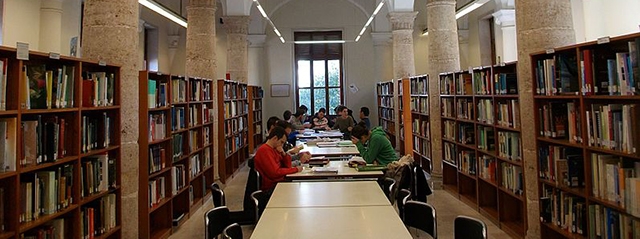If You Are So Smart, Why Aren't You Rich?
Rachvelis, the natives of a beautiful highland region in western Georgia, have a reputation for being slow but thorough in speaking and behavior. Whether slow or not, Rachvelis are certainly not dumb. At least according to their performance in the national General Ability Test (GAT). In 2012, students from Racha-Lechkhumi and Kvemo Svaneti (R-L-KS) were 2nd (!) after Tbilisi on the average GAT performance (Chart 1). Yet, not as many Rachvelis as one would expect end up in the best Georgian universities (Chart 2), which, judging by the average GAT performance of admitted students, are located in Tbilisi (Maia Chanqseliani, 2012). Thus, in 2012, while ranked 2nd on GAT, R-L-KS was only 7th by the share of students admitted to Tbilisi-based universities. Conversely, disproportionately many Rachvelis chose to study closer to home, e.g. in Akaki Tsereteli Kutaisi State University – 43rd on Chanqseliani’s ranking of Georgian higher education institutions!
Racha-Lechkhumi &Kvemo Svaneti region is 2nd after Tbilisi on the General Ability Test…


One may discount the significance of Chanqseliani’s ranking and Rachvelis’ educational choices given that many of the programs offered by Kutaisi State University are of rather decent quality, at least by the Georgian standards. Yet, what her ranking does capture is the quality of peer and network effects in education, which research shows to be an extremely important factor in determining learning outcomes and future earnings. In other words, the quality of human environment in which students find themselves early in their life – not what they study, but who they study with - has a tremendous impacts on their future success. Essentially, by choosing, or being forced, to study in Kutaisi, Rachvelis diminish their chances of moving up the social ladder.
Educational Choices and the Persistence of Regional Disparities
In principle, the system of national tests which Georgia introduced in 2006 was a great leap forward towards meritocracy in education and social mobility. Students who perform very well in these tests are eligible for government scholarships that allow them to study, free of charge or at a large discount, at any public university. These grants can also be applied towards the cost of tuition in more expensive private institutions.
Yet, as we saw above, the allocation of regional talent across universities is still biased towards second-tier provincial universities.
One factor distorting educational choices is distance. For example, above 90% of students from Tbilisi, Kvemo Kartli and Mtskheta-Mtianeti (which are closest to Tbilisi) study in the capital city. Another factor is the presence (or not) of a local university: while also relatively close to Tbilisi, students from Shida Kartli and Kakheti have the choice of studying at the universities of Gori and Telavi, respectively. Imereti and Adjara, which are both remote from Tbilisi and offer a local option, send the lowest proportion of students to Tbilisi (54% and 40%, respectively).
These two factors play an important role in determining education choices because the government scholarships do not cover the cost of housing and living expenses for out-of-town students. The higher costs of living in the capital may prevent students from Racha and other rural locations from studying in Tbilisi regardless of their GAT performance.
Yet another factor affecting educational choices is language and ethnicity. For example, the Armenian-dominated Samtskhe-Javakheti, which is relatively close to Tbilisi and does not offer a local alternative, sends a relatively small share of students (less than 59%) to the capital’s universities. According to anecdotal evidence, the most talented Samtskhe-Javakhetians are studying … in Armenia.
To sum up, the quality of, say, mathematics or engineering education at some of the provincial universities may not be inferior to that offered by Tbilisi State Technical University. However, the sorting of students and universities according to prestige considerations does have a very significant effect on educational outcomes, occupations and, consequently, social mobility. To the extent to which this sorting is distorted by the distance and cost factors, it reinforces existing regional disparities while generating welfare losses for the individuals involved and the economy as whole. To eliminate or reduce these welfare losses, state scholarships should include a living stipend component to encourage the (perhaps) slow but smart Rachvelis to study in a better human environment offered by the more prestigious Tbilisi-based universities.
Giorgi Kelbakiani and Eric Livny












